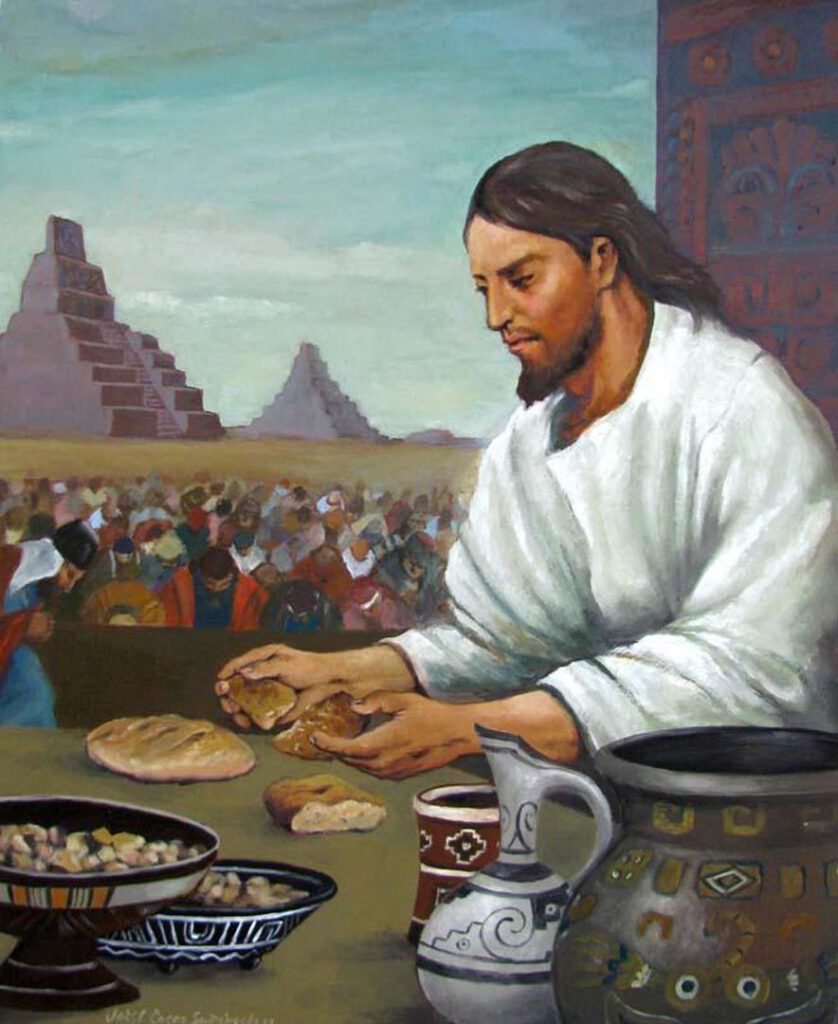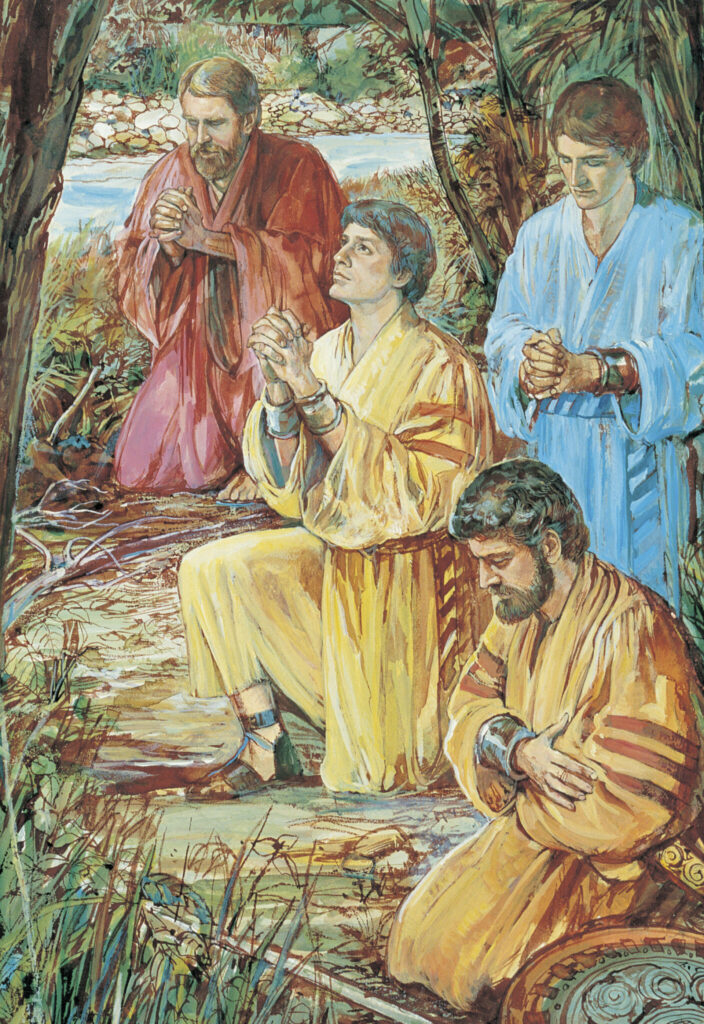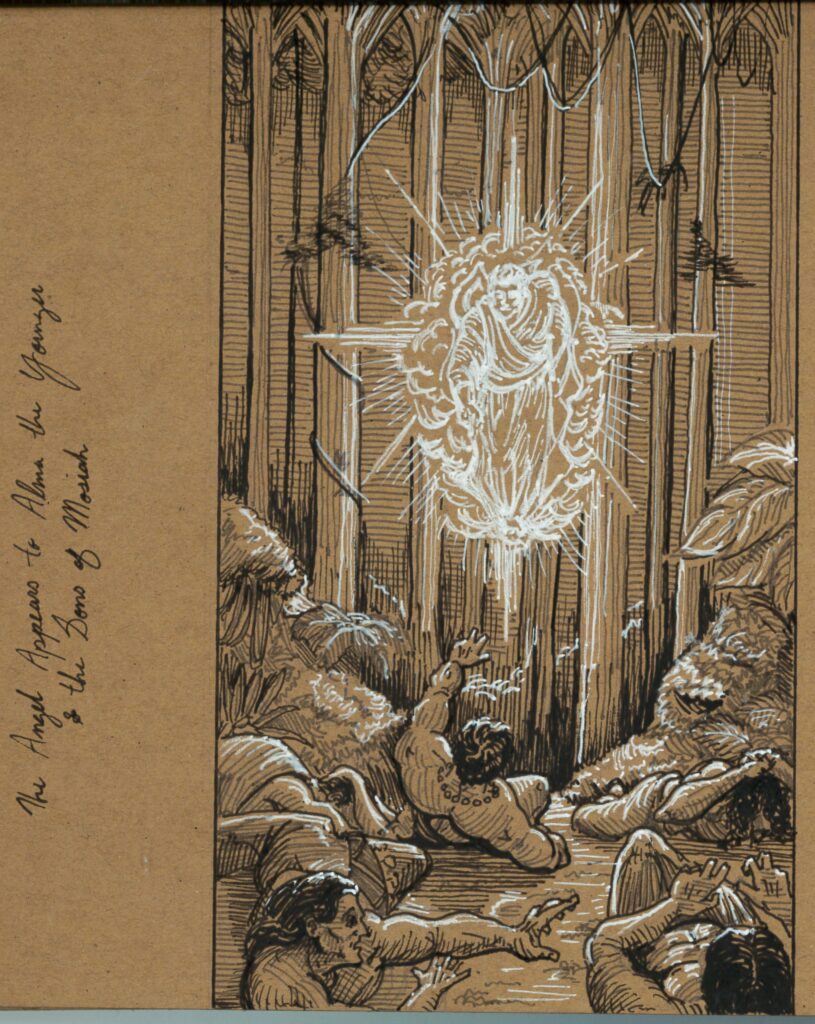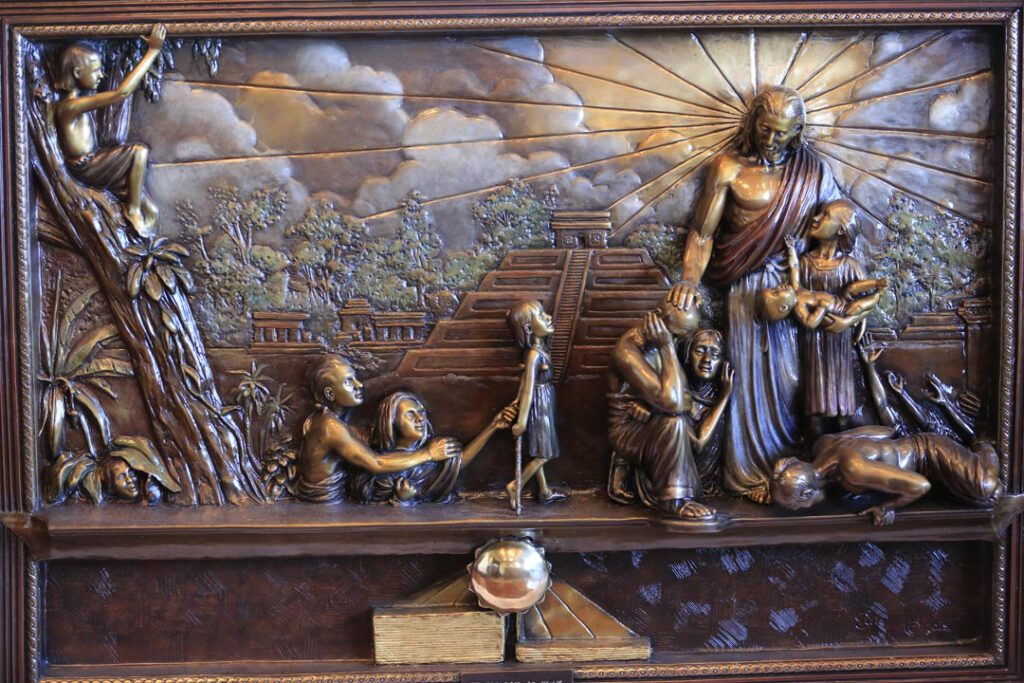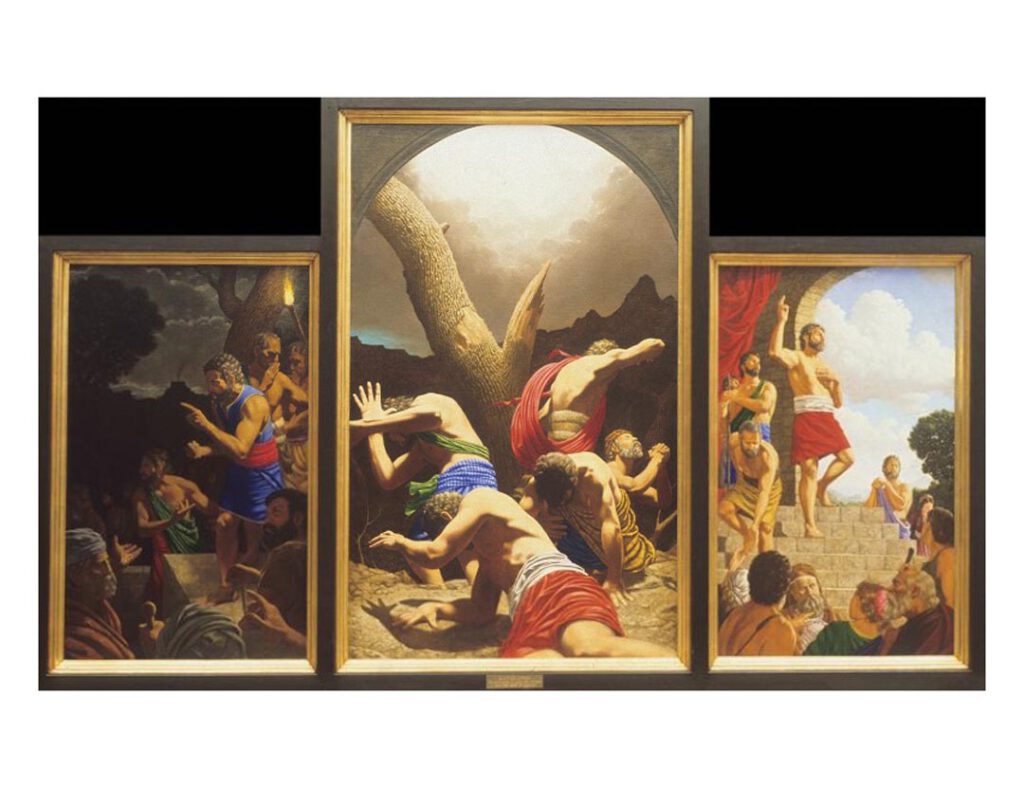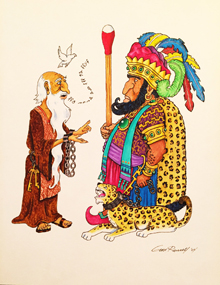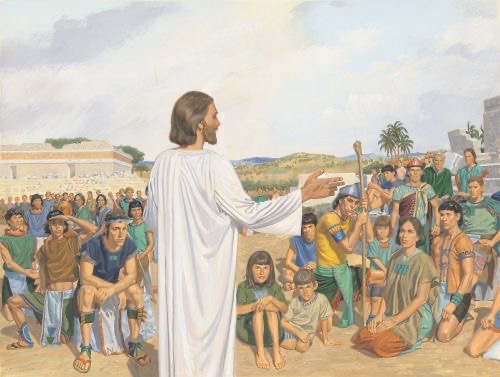In his epistle to the Romans, Paul teaches believers about the purpose behind outward rituals, particularly those associated with the law of Moses. Their intent is to draw the heart and mind toward Jesus Christ, though that significance may be lost in the routine if we are not intentional about remembering. This idea was taught
Category Archives: Come, Follow Me
In Acts chapter 26 Paul shares his witness of Christ’s suffering for our sakes and of the redemption that is promised through the Savior: “Christ should suffer…that he should be the first that should rise from the dead, and should shew light unto the people” (Acts 26:23). Speaking to his son Jacob, the Book of
This week’s “Come, Follow Me” talks about Paul and his companions’ missionary work. Paul’s commitment to the gospel is one of the great miracles of the New Testament. Although originally an unbeliever and even a persecutor, Paul was converted after experiencing an extraordinary vision and healing. These events led him to become a great missionary,
The account in Acts chapter 10 of Peter being led by the Spirit to teach Cornelius, a man he initially supposed to be unclean because of his Gentile lineage, teaches us God’s expectations for whom we should accept. Through a vision in which Peter is commanded to eat animals previously deemed as impure, the Lord
The “Come, Follow Me” reading in Acts 8-9 recounts Saul’s incredible transformation from one who “made havoc of the church” (Acts 8:3) to one who “preached Christ in the synagogues” (Acts 9:20). The story nicely parallels the change of heart experienced by Alma (son of Alma) and recorded in Mosiah 27. Both Saul and Alma
In Acts 1, we read about the 40 days Christ ministered to the apostles after His death and resurrection. During this time, He taught them what to do after He ascended into heaven. These 40 days of instruction proved invaluable to the apostles, who continued to lead Christ’s church and teach His gospel despite immense
Following His resurrection and appearance to Mary Magdalene at the tomb, Christ showed Himself to a group of His disciples. Upon hearing this, Thomas, who had missed the occasion, declared, “except I shall see…I will not believe” (John 20:25). Eight days later, when Jesus appeared once again, He encouraged Thomas to “be not faithless, but
In “Come, Follow Me” this week, we read about the hardships Jesus endured for our sake. Beyond suffering for our sins and hurt, He was scourged, spit upon, and mocked as He was crucified. Though we will not feel this to the degree Christ did, believers have faced persecution in every era. Some notable figures,
This week’s Come, Follow Me reading discusses the betrayal, arrest, and arraignment of Christ. What I consider one of the Bible’s most heartbreaking stories is also found in these passages. Mere hours after Peter pledges his support and love to Christ, telling Him, “Lord, I am ready to go with thee, both into prison, and
After Jesus gave his disciples the sacrament on his last night in Jerusalem, he continued to teach and encourage them. Again and again, Jesus showed love and offered comfort in John 14-17: “Let not your heart be troubled” (John 14:1) “If ye shall ask any thing in my name, I will do it.” (John 14:14)
